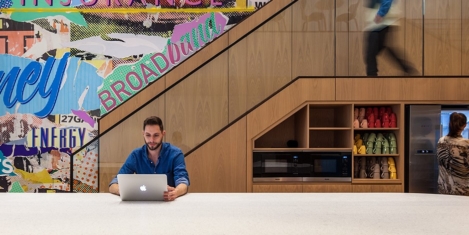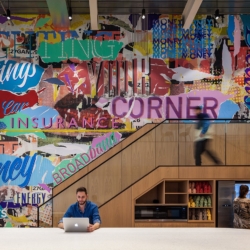To provide the best experiences, we use technologies like cookies to store and/or access device information. Consenting to these technologies will allow us to process data such as browsing behaviour or unique IDs on this site. Not consenting or withdrawing consent, may adversely affect certain features and functions.
The technical storage or access is strictly necessary for the legitimate purpose of enabling the use of a specific service explicitly requested by the subscriber or user, or for the sole purpose of carrying out the transmission of a communication over an electronic communications network.
The technical storage or access is necessary for the legitimate purpose of storing preferences that are not requested by the subscriber or user.
The technical storage or access that is used exclusively for statistical purposes.
The technical storage or access that is used exclusively for anonymous statistical purposes. Without a subpoena, voluntary compliance on the part of your Internet Service Provider, or additional records from a third party, information stored or retrieved for this purpose alone cannot usually be used to identify you.
The technical storage or access is required to create user profiles to send advertising, or to track the user on a website or across several websites for similar marketing purposes.
 Research from Omnipresent, in partnership with Remote Social, claims that four in 10 employers (40 percent) feel that COVID-19 has positively or extremely positively impacted employee retention. In contrast, less than a quarter (24 percent) feel that it has negatively or extremely negatively impacted this area. The survey considered the views of 250 HR managers and C-Suite professionals across the UK. (more…)
Research from Omnipresent, in partnership with Remote Social, claims that four in 10 employers (40 percent) feel that COVID-19 has positively or extremely positively impacted employee retention. In contrast, less than a quarter (24 percent) feel that it has negatively or extremely negatively impacted this area. The survey considered the views of 250 HR managers and C-Suite professionals across the UK. (more…)





 Over the past year, organisations experienced an increase in problems related to finding information, resulting in greater reliance on knowledge and information management tools than in previous years, according to a new survey by
Over the past year, organisations experienced an increase in problems related to finding information, resulting in greater reliance on knowledge and information management tools than in previous years, according to a new survey by 
 The
The 










 Three quarters of organisations say access to market opportunities is their key motivation for international expansion, according to a report. Businesses also named access to specialist skills as one of the main factors that influence their international growth ambitions (cited by 67 percent), alongside proximity to suppliers and resources (66 percent) and access to affordable labour (55 percent).
Three quarters of organisations say access to market opportunities is their key motivation for international expansion, according to a report. Businesses also named access to specialist skills as one of the main factors that influence their international growth ambitions (cited by 67 percent), alongside proximity to suppliers and resources (66 percent) and access to affordable labour (55 percent). 


 Many companies are moving away from long-term overseas placements in favour of short-term transfers, a report has suggested. To reduce costs and meet changing business and worker needs, firms are shifting from typical transfers of one to three years to moves of around three to 12 months,
Many companies are moving away from long-term overseas placements in favour of short-term transfers, a report has suggested. To reduce costs and meet changing business and worker needs, firms are shifting from typical transfers of one to three years to moves of around three to 12 months, 







September 21, 2021
The commercial property market is changing rapidly, and for the better
by Tom Jansons • Comment, Property